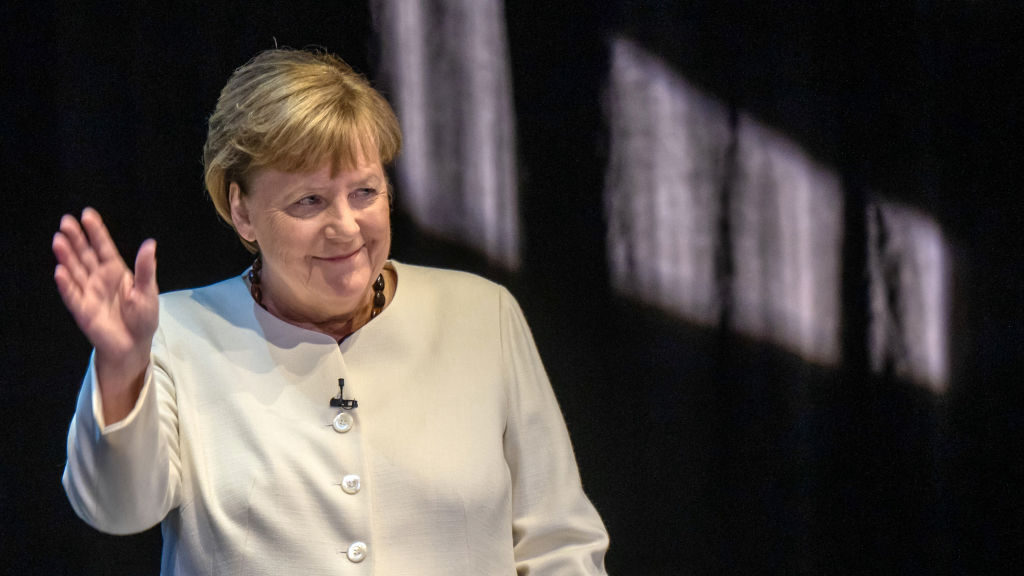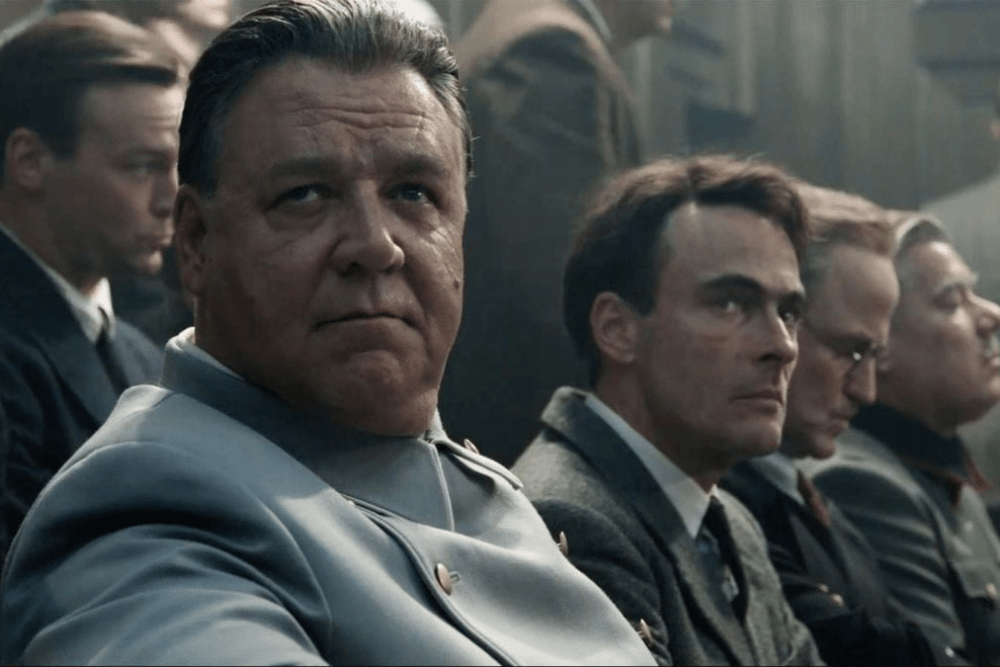Last night, nearly three years to the day since she handed over the reins of power to Olaf Scholz, Angela Merkel appeared at London’s Royal Festival Hall to promote her newly published memoir, Freiheit, or ‘Freedom’.
The compulsion to write her memoirs first arose in 2015, she said, out of a desire to explain her decision to open Germany’s doors to over one million asylum seekers
Merkel’s autobiography comes at an important moment for the country she used to govern. After the collapse of Scholz’s traffic light government, Germany is staring down the barrel of a snap election expected to take place in February. With the country grappling with all-time high levels of migration, growing crime rates, a stuttering economy, increasingly polarised support for Ukraine and a soaring cost of living crisis, many of the policies Merkel introduced and championed have come under scrutiny. The former chancellor’s legacy is facing a reckoning: how much of the blame for Germany’s current litany of problems can be laid at her door?
Merkel herself is resolutely unapologetic: she has no regrets. The compulsion to write her memoirs first arose in 2015, she said, out of a desire to explain her decision to open Germany’s doors to over one million asylum seekers in that summer’s migrant crisis. Her Christian beliefs drove her need to deal with the refugees heading towards Germany ‘in a humane way’, she said.
‘I knew that we couldn’t allow tens of thousands of people to come each year’, Merkel admitted. But ultimately her desire to stop people traffickers profiting from the situation by creating legal routes for migrants to enter the country trumped her reservations. ‘Picture what these people suffered through.’ Her famous – and now in some quarters infamous – catchphrase ‘Wir schaffen das’ (‘We can manage it’) was meant, she said, ‘by way of encouragement’.
Merkel’s desire to explain her approach to migration comes as Germany increasingly rejects her open-doors policy and the societal impact it has had on the country. Ahead of February’s federal election, migration consistently polls as the number one concern for voters.
In remarks Scholz’s SPD party is unlikely to thank her for, Merkel stressed that the decision to allow such a rapid influx of asylum seekers into Germany wasn’t hers alone: her then SPD coalition partners also agreed to the plan.
‘It’s true’, Merkel said, that her migration policy has emboldened the far-right Alternative für Deutschland (AfD) party, who are now likely to be the second-largest party in the Bundestag after the election. But, Merkel argued, ‘there have been others governing in the meantime’ – a reference to Scholz’s disastrous coalition government.
High energy prices and the question mark over Germany’s ongoing support for Ukraine in its war against Russia have also led to criticism of Merkel’s legacy. She has been accused of lulling Germany into a false sense of security, allowing the country to become reliant on cheap Russian gas via the Nord Stream pipelines to power the country’s infrastructure while failing to adequately challenge Russia’s president Vladimir Putin as his aggression escalated, first in Georgia and then Crimea.
Did she underestimate Putin? ‘I very early on realised that he was always looking to test you.’ In remarks bound to cause a stir, she continued, ‘I didn’t underestimate him – but obviously he stood up for the interests of his country.’ Merkel didn’t clarify which interests she as talking about.
Merkel was resolute that she also didn’t regret establishing Germany’s dependence on cheap Russian gas – something which left the country acutely exposed to high energy prices and a cost-of-living crisis in the wake of Putin’s invasion. ‘We needed energy for our industry; Russian gas was cheap,’ she shrugged.
In the eight years between the Russian invasion of Crimea and the full-scale invasion of 2022, the Ukrainians had no issue with Germany using cheap Russian gas, Merkel claimed, because they too wanted to profit from the gas transit fees the arrangement brought their way. On the question of Nato membership, she struck a fatalistic tone, saying there was no question of admitting Ukraine to the alliance in 2008 – even granting them a membership action plan to pave the way to joining would have provoked Putin’s aggression, she said. ‘Ukraine was not ready’ for that then.
Pressed on the impending second American presidency of Donald Trump and what that might mean for Europe and Britain, the former chancellor had some words of advice for the British Prime Minister Keir Starmer. In a nod to comments made in recent weeks by Trump’s adviser that Britain would face a choice over whether to align with the US or EU on trade, she said: ‘It is always important that as prime minister or chancellor you stand up for the interests of your country. One should be free of fear and work for your interests.’ Ultimately, though, Germany had ‘felt abandoned’ by the UK’s vote for Brexit, so any thaw in relations in the coming years would, she felt, be very welcome.
From the reception Merkel received from the predominantly German-speaking audience, it is clear that the former chancellor is still viewed with reverence and affection by many. Under her 16-year long leadership, Germany enjoyed peace and prosperity, with flourishing industry and growing living standards. Only now, three years after she retired from politics, is her legacy being viewed through a more critical lens. A state of denial still exists when it comes to the country’s current problems – many of which trace their roots back to her lengthy premiership.








Comments